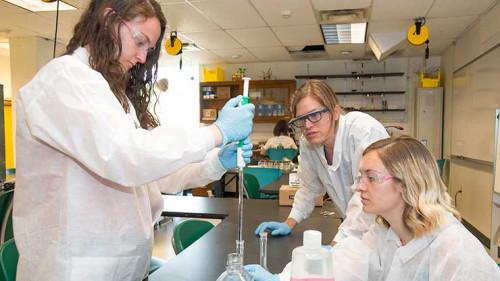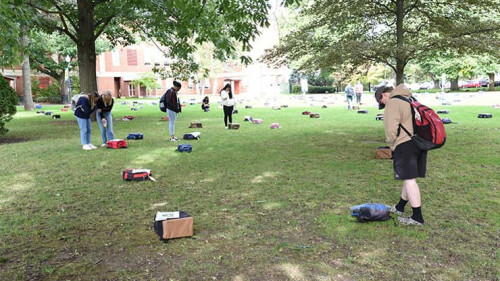
By Eric Guzman '12
This year, the Siena College Symposium on Living Philosophers has been inviting professors from other colleges and universities to discuss the ideas of Kwame Anthony Appiah, Ph.D., professor of philosophy at Princeton University. Appiah, who visited campus in September, spoke about the nature of language, racial identity, political and moral relationships and philosophical methodology.
This semester, Director of the Philosophy-Neuroscience-Psychology Program at Washington University Ron Mallon, Ph.D. discussed Appiah's ideas in his lecture, “Social Roles and Identity.”
Mallon acknowledged that Appiah has argued from a racial eliminationist position, but has also offered an account of racial identities that accommodates the social dimensions of racial classification. Mallon’s study of this ideology has led him to ask the question, “If race doesn’t exist, then why does it seem like it does?” If race doesn’t exist, then socially constructed racial identities do, Mallon explained. Such identities can be constructed either overtly or covertly. That is, in accordance with a person's own creation or in accordance with nature, respectively.
According to Appiah, conforming to racial identities are intentional performances. Mallon quoted Appiah who said, “Once labels are applied to people, ideas about people who fit that label come to have social and psychological effects.”
Mallon offered solutions that explained the dilemma as to why race seems real if it isn’t and to how race can be intentional but so widely misunderstood. “We might actually give up on covertness,” said Mallon. “It could be said that we know perfectly well when we are engaged in performances.” People who understand their reason for action and can reflect upon them appropriately possess accounts of agency, autonomy, freedom, humanity, personhood and responsibility, explained Mallon. A failure of this self-knowledge threatens our capacity for these characteristics since reflection requires knowledge. If we represent actions as causally produced, we can say that people reflect.
As part of the symposium, Mallon’s presentation allowed Siena students to examine the ideas and critiques of Appiah in an attempt to form their own positions.
“The journey through the symposium has been an academically rewarding experience thus far,” said Amanda Tashjian ’13. “Studying the work of Professor Appiah, as well as critiques of his work, has enabled members of our class to explore our own interpretations of race and identity, among other valuable concepts.”
Professor Appiah will be returning to speak on Thursday, March 29 for the next part of this year’s Symposium on Living Philosophers. On Friday, March 30 he will be engaging in a panel discussion with students to share and discuss their research and critical examination of his work.



